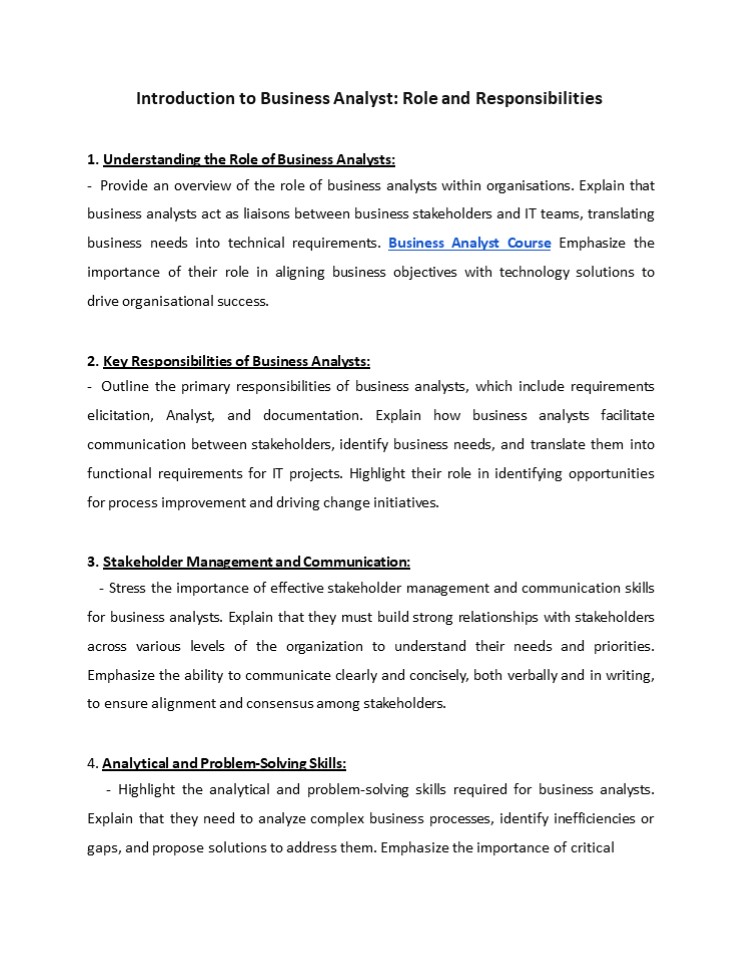Business Analyst Course - PowerPoint PPT Presentation
Title:
Business Analyst Course
Description:
ExcelR's Business Analyst Course offers a comprehensive learning experience, providing essential skills to excel in the dynamic field of business analysis. Business name: ExcelR- Data Science, Data Analytics, Business Analytics Course Training Mumbai Address: 304, 3rd Floor, Pratibha Building. Three Petrol pump, Lal Bahadur Shastri Rd, opposite Manas Tower, Pakhdi, Thane West, Thane, Maharashtra 400602 Phone: 9108238354, Email: enquiry@excelr.com – PowerPoint PPT presentation
Number of Views:0
Title: Business Analyst Course
1
- Introduction to Business Analyst Role and
Responsibilities - Understanding the Role of Business Analysts
- Provide an overview of the role of business
analysts within organisations. Explain that
business analysts act as liaisons between
business stakeholders and IT teams, translating
business needs into technical requirements.
Business Analyst Course Emphasize the importance
of their role in aligning business objectives
with technology solutions to drive
organisational success. - Key Responsibilities of Business Analysts
- Outline the primary responsibilities of business
analysts, which include requirements
elicitation, Analyst, and documentation. Explain
how business analysts facilitate communication
between stakeholders, identify business needs,
and translate them into functional requirements
for IT projects. Highlight their role in
identifying opportunities for process
improvement and driving change initiatives. - Stakeholder Management and Communication
- - Stress the importance of effective stakeholder
management and communication skills for business
analysts. Explain that they must build strong
relationships with stakeholders across various
levels of the organization to understand their
needs and priorities. Emphasize the ability to
communicate clearly and concisely, both verbally
and in writing, to ensure alignment and
consensus among stakeholders. - 4. Analytical and Problem-Solving Skills
- - Highlight the analytical and problem-solving
skills required for business analysts. Explain
that they need to analyze complex business
processes, identify inefficiencies or gaps, and
propose solutions to address them. Emphasize the
importance of critical
2
thinking, creativity, and attention to detail in
identifying root causes and developing effective
strategies. 5. Documentation and Requirements
Management - Discuss the importance of
documentation and requirements management in
business Analyst. Explain that business analysts
are responsible for documenting business
requirements, functional specifications, and
other project artifacts. Emphasize the need for
clear, concise, and well-organized documentation
to ensure that requirements are accurately
captured and communicated to stakeholders and
development teams. By covering these key
aspects, an introduction to business analyst
course in mumbai can provide students with a
comprehensive understanding of the role and
responsibilities of business analysts. Encourage
practical exercises, case studies, and
real-world examples to illustrate how business
analysts contribute to organizational success
through their analytical skills, communication
abilities, and stakeholder management expertise.































